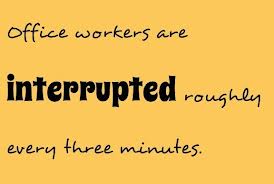
In today’s rapidly evolving business landscape, the ability to manage organizational change isn’t just an asset—it’s a necessity for maintaining a competitive edge. As an entrepreneur, you’re not just a business owner; you’re a leader tasked with guiding your company through transitions with foresight and precision.
Successfully navigating these shifts demands a deep understanding of your team’s potential and a strategic roadmap to chart your progress.
The goal? To empower your workforce for the challenges ahead through targeted support, training, and resources.
Analyze Your Team’s Strengths and Weaknesses
Effective change management starts with a clear-eyed assessment of your team’s unique strengths and areas for development. By pinpointing each employee’s abilities, you can strategically align roles with skill sets, driving productivity and fostering a sense of value. Is someone on your team a natural problem-solver? Position them where their innovative thinking can shine. For those who may find change more challenging, targeted support and training will equip them to thrive in an evolving environment.
Chart Your Course with a Clear Timeline
A well-defined timeline is the backbone of any successful change initiative. By setting realistic expectations and milestones, you keep everyone on track and focused on the end goal. Remember, flexibility is key. Unexpected hurdles are inevitable, so build in room to adapt. Regular updates and checkpoints will maintain momentum and ensure that no aspect of your plan falls behind. This structured approach not only drives results but also reduces stress by providing clarity and direction.
Celebrate Milestones
Don’t forget to celebrate progress! Acknowledging milestones and rewarding your team’s achievements is a powerful way to boost morale and sustain enthusiasm throughout the change process. These celebrations can be a great way to keep morale high and remind everyone of the progress that is being made.
Empower Your Team with Training and Support
Investing in effective training and support is critical for ensuring a smooth transition and maintaining productivity. Jenny offers Make Time Your Ally, a dynamic time management workshop, which addresses your company’s specific challenges to turn them into strengths. Prioritization, procrastination, more time to focus on important tasks, and email strategies are just a few of the topics.
Clear communication, interactive training sessions, and ongoing support empower employees to embrace new processes and systems with confidence.
Having a point of contact available to answer questions as they arise is also helpful. Schedule regular training sessions to educate teams about the changes, address concerns, and provide opportunities to learn new skills.
Leverage the Power of Coaching
In times of uncertainty, coaching can be an invaluable resource. Individual or team coaching provides leaders with the guidance and support they need to champion the vision of change, overcome obstacles, and communicate effectively. Anyone who has experienced coaching will tell you it has accelerated their development.
Teams can also benefit from coaching, by creating a more cohesive unit and motivating and inspiring individual members. A skilled team coach can help resolve conflicts, address resistance, and foster a collaborative environment where everyone feels empowered to contribute.
Jenny offers executive coaching for all levels of business to support them through a changing landscape and motivate them to achieve their goals. She will work as a success partner, strategist, and personal advocate. She partners with businesses every step of the way so they grow and thrive.
Anticipate and Mitigate Roadblocks
Change is rarely without its challenges. By anticipating potential roadblocks, you can proactively develop solutions and minimize disruptions. Whether it’s technological glitches, market shifts, or internal resistance, having a contingency plan in place will keep you on track and maintain morale.
Engage with different departments to identify potential issues and develop tailored solutions. Addressing concerns proactively not only keeps the change process on track but also reinforces confidence in your leadership and direction.
Address Employee Pushback with Empathy and Transparency
Resistance from employees is a common challenge and is a natural part of any change process. Addressing employee concerns directly and fostering open communication is essential for building trust and buy-in. Encourage your team to voice their fears and frustrations, and respond with honesty and empathy.
Ensure that every employee understands the ‘why’ behind the changes and how it benefits both the team and the organization as a whole. This preparedness will not only keep the change process on track but also help maintain staff morale and confidence in the company’s leadership and direction.
By demonstrating empathy and providing clear, transparent communication, you can significantly reduce resistance and foster a more cohesive and committed workforce.
Create a Comprehensive Change Management Plan
Finally, synthesize all of these elements into a comprehensive change management plan. This plan should clearly articulate the goals of the change, the steps required to achieve them, the roles and responsibilities of team members, and the timelines for each phase.
Provide easy access to the plan or a concise summary to ensure clarity and foster a sense of ownership. Regularly review and adjust the plan as needed to accommodate new insights and emerging circumstances.
A dynamic plan, combined with a robust strategy for communication and employee engagement, will serve as your roadmap for navigating organizational change successfully.
Transform Change into Opportunity
Effective management of change hinges on a clear vision, meticulous planning, and a deep understanding of your team’s capabilities and areas for improvement. By proactively supporting your employees throughout this transition, you create a resilient foundation for your business to not only withstand change but to thrive in the face of it. Embrace change as an opportunity for growth, innovation, and new achievements. With these strategies in place, you’ll position your business to adapt, flourish, and stand out in today’s competitive marketplace.
Transform your productivity and organize your life with executive coaching and workshops from Efficient Spaces.
Book a discovery call today to unlock your team’s potential!
Resources:
https://ideascale.com/blog/5-tech-issues-that-can-slow-down-innovation










